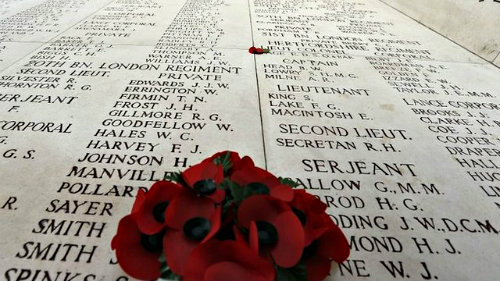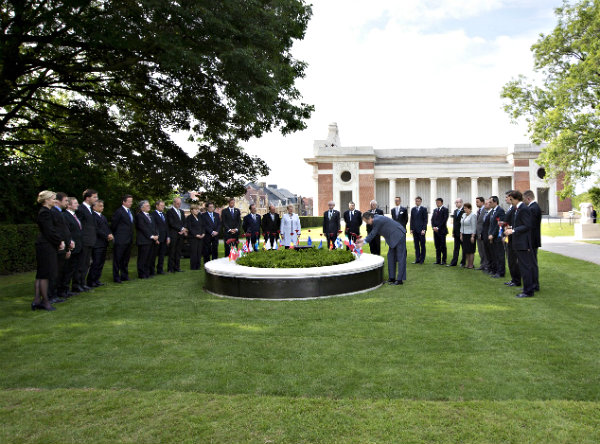EU leaders – from Germany, Britain, France and other European countries – marked the centenary of the Great War in the Belgian city of Ypres where once, their own countrymen killed each other through machine guns, artillery and poison gas.
EU leaders vowed Thursday, June 26, during the said event that they will do everything in their power to preserve peace over the continent.
WWI was an exceptional war in terms of scope and viciousness. Because of it, some 14 million lives comprised of 9 million soldiers, airmen and sailors and 5 million civilians died. The Great War also left approximately 7 million servicemen disabled permanently.
In fact, in that flat alone in Ypres, Belgium where the EU leaders converged Thursday, about half million soldiers were killed during the onerous battles which occurred there. These deaths happened in the often muddy terrains of the area inside the small Belgian city of Ypres which is in western Flanders as well as in the fields around it in between 1914 and 1918, the Great War years.
According to German Chancellor Angela Merkel, one of the EU leaders present for the event, holding the summit of the European Union – comprised of 28 European countries – within the boundaries of the Belgian city which had to be built from scratch after WWI ended sends a strong message to the world.

She pointed out that she believes it is a precedent of the good state Europe is currently and she attributed it to the existence of the European Union and the learning history brought upon humankind.
British Prime Minister David Cameron, who was also one of the EU leaders in attendance, spoke about remembering those who served during the Great War and recognizing that peace we enjoy must not be taken for granted but given a great value everyday.
The commemoration of the 100 years of the start of the Great War was started with the EU leaders walking through Ypres to the sound of drums. The EU leaders also attended the “Last Post”, the bugle salute to the fallen performed at the Menin Gate every evening. Menin Gate was put up to serve as a WWI memorial to the British and Commonwealth servicemen who marched through the gates to the front lines. Many of those never returned alive.
Herman Van Rompuy, the summit’s chairman, urged the EU leaders during his speech to act as the guardians of vigilance making sure that history will not repeat itself, WWI-wise.
He also pointed out to the EU leaders in his speech which used four languages that it is our task to prevent the spirals and exaggerations, to maintain trust and preserve peace through words and actions.
After WWI ended, vows to never again be engaged in war surfaced only to be retracted as the outcomes of the said conflict gave rise to the Second World War. Additionally, the nationalist conflicts which acted as the spark for the killings never really went off. The current situation Ukraine and Russia are in is a proof to that.
EU leaders planned to discuss the tensions rising in Ukraine Friday, the day following the commemoration. The EU leaders projected to talk to Ukrainian President Poroshenko that day after which they would be deciding whether to impose further sanctions against Russia.
However, Europe has greatly changed since that time when nationalism sparked the war among neighboring countries. Ypres citizens who gathered on the sidelines for the Ypres summit of the EU leaders cheered when Merkel appeared. The German Chancellor was also the only one among her fellow EU leaders to breach protocol by approaching some of the residents and thanking them personally for hosting the event and how nicely the town has been rebuilt.
Meanwhile, hours before the arrival of the EU leaders, 80-year-old Arthur Siggee with his wife Audrey who were from Lincolnshire in England were at the Menin Gate memorial searching for the name of one of their relatives. With him was a photograph of his uncles, three brothers, who all died during the Great War along the Somme area.
He stated that it might be the last time they can pay the memorial a visit due to their age.
